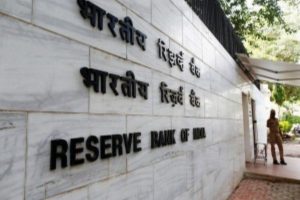While the dastardly Hamas attack on 7 October last, and the Israeli response thereafter have been discussed often in these columns, as indeed they have been around the world, the one-sided conflict raging in West Asia, with Palestinians in the Gaza Strip bearing the brunt of Tel Aviv’s aggression, is now beginning to draw responses that threaten to rip open fault lines in Western societies.
A boycott of KFC outlets in Muslim-majority Malaysia, to register protest against America’s support for Israel, may be entirely predictable. But the fires of protest ignited on university campuses as far apart as New York and California, or New Mexico and Florida, in an American presidential year, suggest that the Western world’s perception of a David v Goliath confrontation is hardening. A May Day demonstration in London emerging as a pressure point to stop Britain from supplying arms to Israel is another link in a chain of protests to express revulsion for what is being seen as an indiscriminate assault on innocent occupants of the Gaza Strip for the crimes of some of their compatriots.
Advertisement
A few weeks ago, nearly 800 serving American and European officials had in a statement said that the actions of Western governments could amount to grave violations of international law. They had accused Israel of showing no boundaries in its Gaza military operations, and charged their own governments with failing to heed advice from those who understood the region. The statement was signed by officials from the US, the European Union and 11 European nations including the UK, France and Germany. Observers had then noted that coordinated dissent by so many officials from different countries was itself unprecedented. But such dissent was confined to the rarefied corridors of decision-making, unlike the protests being witnessed on university campuses now. These are growing by the day notwithstanding the risk of punitive actions being initiated by authorities. Already more than 1,000 protestors have been arrested, including faculty members; more than 20 campuses have been affected, and some have been forced to take early semester breaks, and demands that universities sever ties with Israel and with companies involved in the conflict have been repeatedly raised.
While American President Joe Biden and Israeli Prime Minister Benjamin Netanyahu have characterised the protests as anti-Semitic, the presence of several Jewish groups at protest sites suggests that the anger defies easy description. Already, some commentators have compared the situation on American campuses to the anti-Vietnam War protests of the late 1960s. It is clear that today’s youth sees the West Asia conflict as a manifestation of the military-industrial complex’s evil designs and seeks to force participants to stop the violence which has already claimed several thousand lives while having displaced hundreds of thousand Gaza residents. The West is sitting on a powder keg, and its leaders are emerging as a discredited lot in the eyes of their youth. The Gaza war has come to America’s streets.











